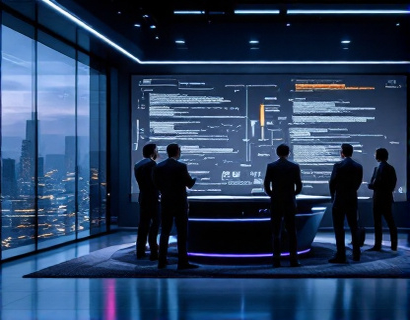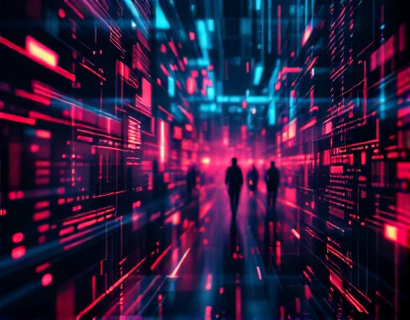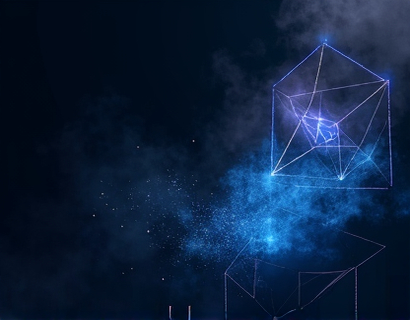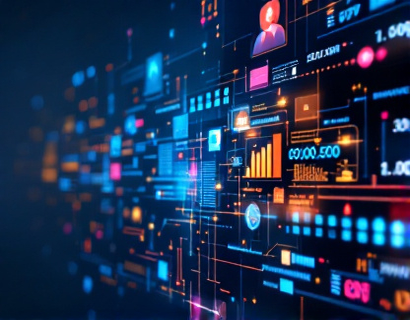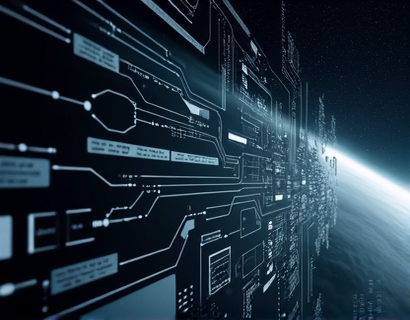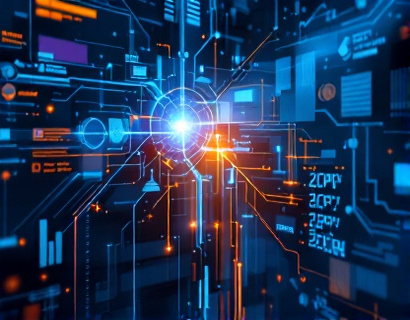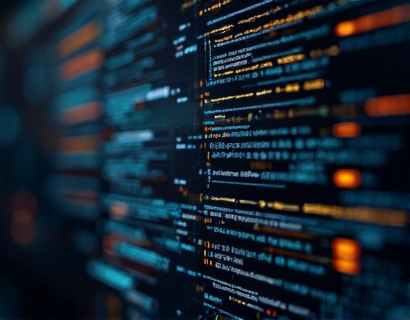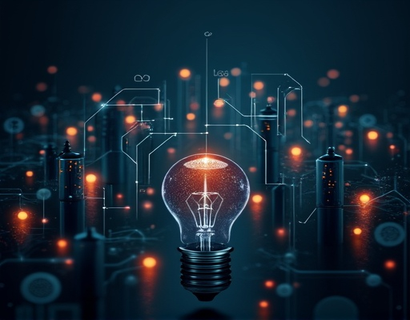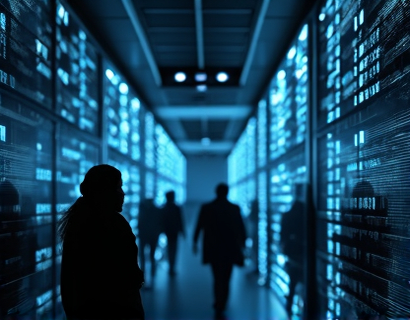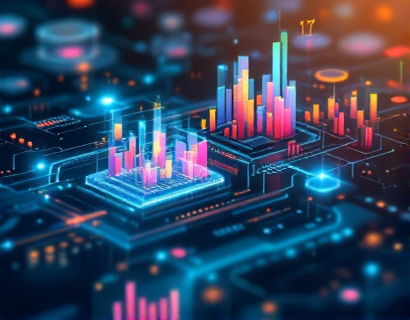Next-Gen Ucosystem Dynamics: Transforming Applications with AI and Crypto
The intersection of cryptocurrency and artificial intelligence is giving birth to a new era of technological advancements, redefining how we interact with digital applications and services. This fusion is not just an evolution but a revolution, promising unprecedented levels of security, efficiency, and innovation. As we delve into the next generation of tech-driven applications, it's essential to understand the dynamics at play and how these technologies are transforming the digital landscape.
The integration of AI and crypto is creating a synergy that enhances the capabilities of both domains. AI's ability to process vast amounts of data, learn from patterns, and make intelligent decisions is complemented by crypto's decentralized and secure nature. This combination is leading to the development of applications that are not only smarter but also more secure and user-centric. Let's explore the key areas where this fusion is making a significant impact.
Enhanced Security through Blockchain and AI
One of the most compelling aspects of the AI and crypto convergence is the enhancement of security measures. Blockchain technology, the backbone of cryptocurrency, provides a decentralized and immutable ledger that ensures data integrity and transparency. When combined with AI, the security protocols become even more robust.
AI can detect and respond to threats in real-time, identifying anomalies and potential security breaches before they occur. Machine learning algorithms analyze patterns and behaviors to predict and prevent fraudulent activities. This proactive approach to security is crucial in a digital world where cyber threats are becoming increasingly sophisticated. For instance, AI-powered systems can monitor blockchain transactions continuously, ensuring that any suspicious activity is flagged and addressed immediately.
Moreover, AI can improve the user authentication process. Traditional methods like passwords are vulnerable to attacks, but AI-driven biometric verification, such as facial recognition and voice authentication, offer a more secure alternative. These methods are not only more secure but also more convenient for users, reducing the friction often associated with multiple authentication steps.
Optimized User Experiences with Personalization
The ability of AI to understand and predict user behavior is revolutionizing the way applications are designed and delivered. By leveraging AI, developers can create highly personalized experiences that cater to individual preferences and needs. This level of personalization is particularly valuable in the crypto space, where users often seek tailored solutions for their financial and technological needs.
For example, AI-driven recommendation systems can suggest crypto assets, trading strategies, and investment opportunities based on a user's historical data and market trends. These systems continuously learn and adapt, providing increasingly accurate and relevant recommendations over time. This not only enhances the user experience but also increases user engagement and satisfaction.
Personalization extends beyond recommendations. AI can optimize the user interface and user experience (UI/UX) by dynamically adjusting the layout, content, and functionality based on user behavior and device capabilities. This ensures that users have a seamless and efficient interaction with the application, regardless of their device or location.
Decentralized Applications and Smart Contracts
Decentralized applications (dApps) are a cornerstone of the crypto ecosystem, and AI is playing a pivotal role in their development and functionality. Smart contracts, self-executing contracts with the terms directly written into code, are becoming more intelligent and autonomous with the help of AI.
AI can enhance smart contracts by adding predictive analytics and decision-making capabilities. For instance, AI can analyze market conditions and automatically execute trades or transfer assets based on predefined criteria. This automation not only increases efficiency but also reduces the risk of human error. Additionally, AI can help in the creation of more complex and sophisticated smart contracts, enabling a wider range of use cases and applications.
Another significant benefit of AI in dApps is the improvement of user interaction. AI-powered chatbots and virtual assistants can provide real-time support and guidance within dApps, helping users navigate complex processes and make informed decisions. These AI-driven tools can understand natural language queries and provide accurate responses, enhancing the overall user experience.
Tokenization and AI-Driven Market Efficiency
Tokenization, the process of converting assets into digital tokens on a blockchain, is another area where AI is making a substantial impact. By combining tokenization with AI, the efficiency and liquidity of asset markets are significantly improved.
AI can analyze vast amounts of market data to identify trends, predict price movements, and optimize token pricing. This data-driven approach ensures that tokens are priced fairly and accurately, reducing market inefficiencies. Moreover, AI can facilitate automated trading and arbitrage, allowing for faster and more precise transactions. This not only benefits traders but also enhances the overall liquidity of the market.
Tokenization also extends to the creation of utility tokens that represent access to services or products. AI can help in the design and management of these tokens by analyzing user behavior and preferences, ensuring that the tokens are aligned with user needs and market demands. This alignment increases the adoption and utility of these tokens, fostering a more vibrant and dynamic ecosystem.
Supply Chain Transparency and Traceability
The supply chain industry is another sector that stands to gain greatly from the AI and crypto fusion. Blockchain's transparency and immutability, combined with AI's analytical capabilities, can revolutionize how goods are tracked and managed from production to delivery.
AI can process and analyze data from various points in the supply chain, identifying bottlenecks, optimizing routes, and predicting potential issues. This real-time monitoring and analysis help in reducing costs, improving efficiency, and ensuring compliance with regulatory standards. Additionally, AI can enhance traceability by providing a detailed and verifiable history of each product, from raw materials to the end consumer.
Crypto plays a crucial role in this process by ensuring secure and transparent transactions. Smart contracts can automate payments and verify the authenticity of goods, reducing the risk of fraud and counterfeiting. This combination not only streamlines operations but also builds trust among all parties involved in the supply chain.
Challenges and Considerations
While the potential of AI and crypto in transforming applications is immense, there are several challenges and considerations that need to be addressed. One of the primary concerns is the regulatory landscape. The intersection of crypto and AI operates in a relatively uncharted territory, and regulatory frameworks are still evolving. Developers and businesses must navigate these regulations carefully to ensure compliance and avoid legal pitfalls.
Another challenge is the technical complexity involved in integrating AI and blockchain technologies. Developing robust and scalable solutions requires expertise in both domains, which can be a barrier for many organizations. Additionally, the computational resources required for AI and blockchain can be substantial, leading to higher costs and energy consumption.
Privacy is also a critical issue. While AI and blockchain offer enhanced security, they also raise concerns about data privacy and user consent. It's essential to implement strong privacy measures and transparent data handling practices to build user trust and comply with regulations like GDPR.
Future Outlook
The future of AI and crypto integration is promising, with numerous exciting developments on the horizon. As technology advances, we can expect to see more sophisticated and seamless integrations that further enhance the capabilities of applications in various sectors.
One area of focus will be the development of more energy-efficient blockchain solutions, addressing the environmental concerns associated with current blockchain technologies. Additionally, the rise of quantum computing could revolutionize AI's capabilities, enabling even more complex and powerful applications.
In the crypto space, the adoption of AI-driven decentralized finance (DeFi) platforms is likely to grow, offering more intelligent and user-friendly financial services. The combination of AI and crypto will continue to drive innovation, creating new opportunities for developers, businesses, and users alike.
In conclusion, the fusion of AI and crypto is transforming the digital landscape, leading to more secure, efficient, and user-centric applications. As we continue to explore and harness this synergy, the possibilities for innovation and growth are endless. The next generation of tech-driven applications will undoubtedly shape the future of technology and beyond.




